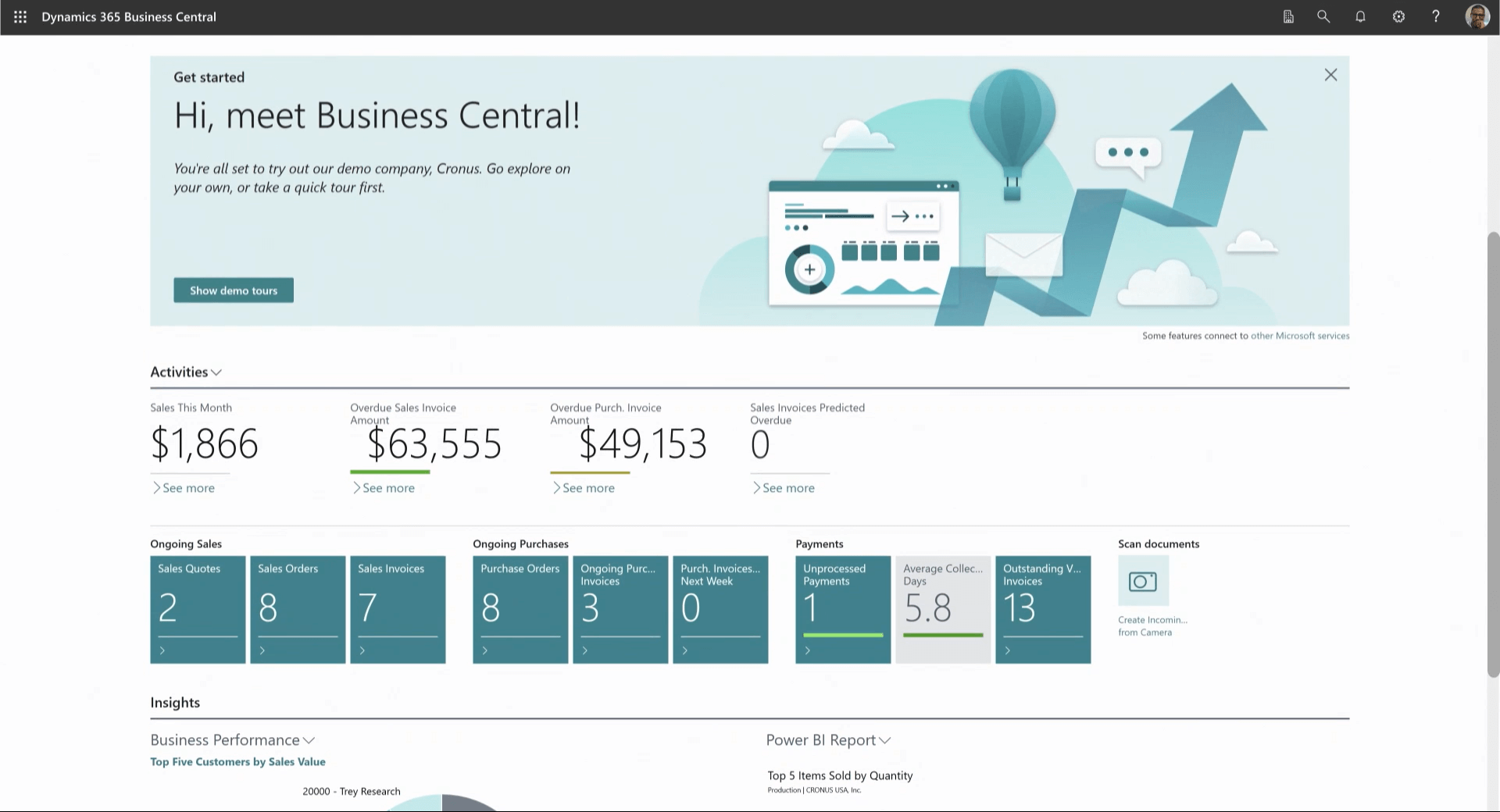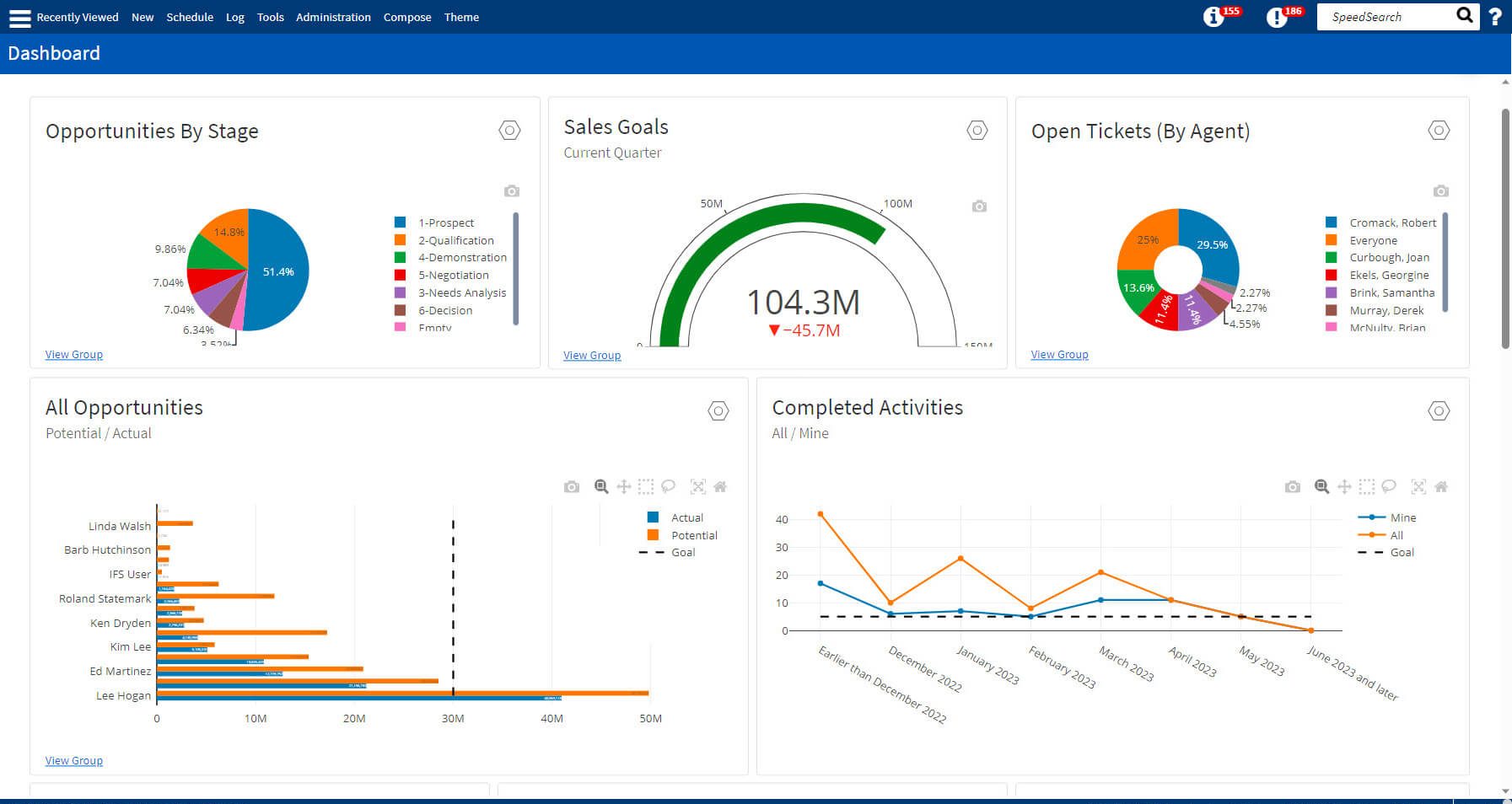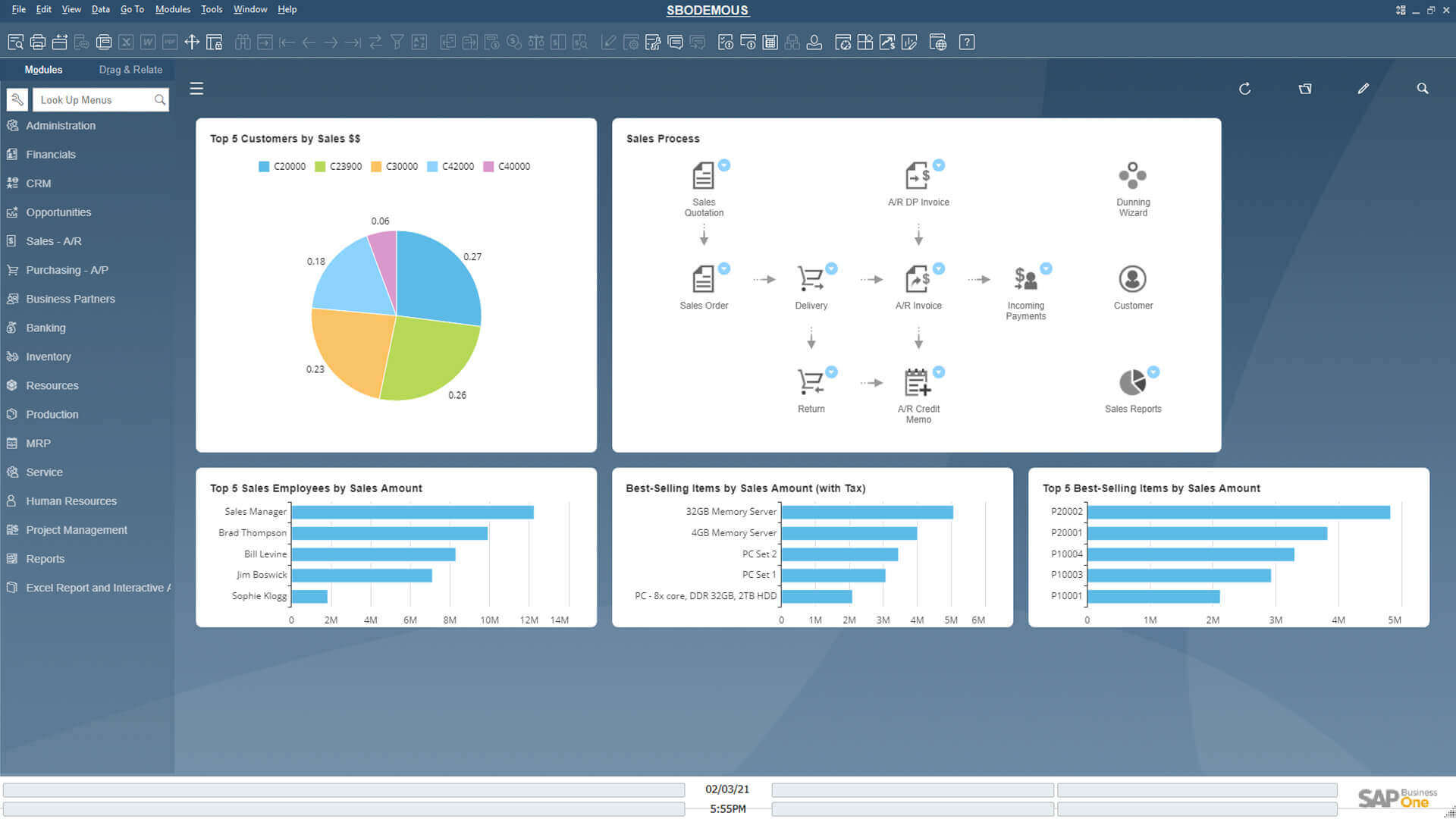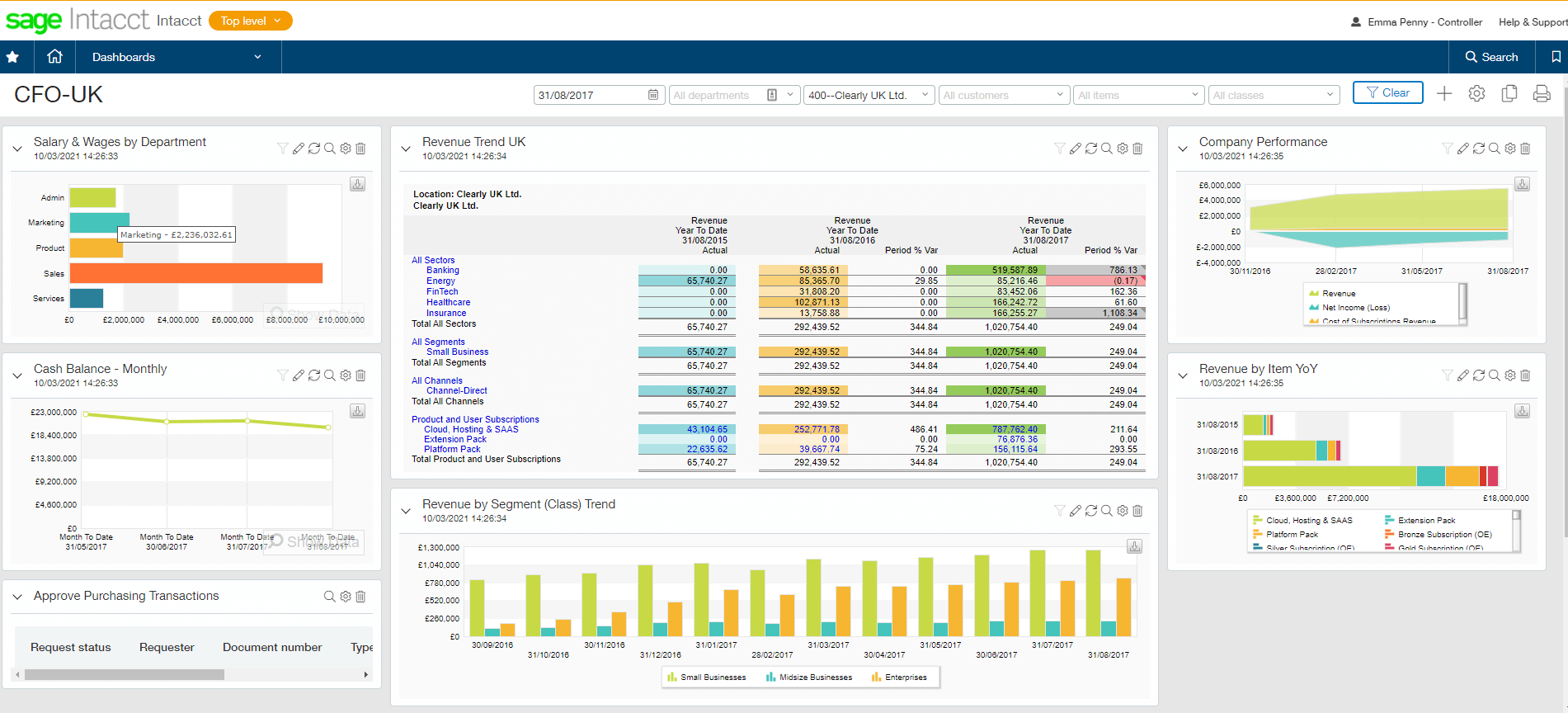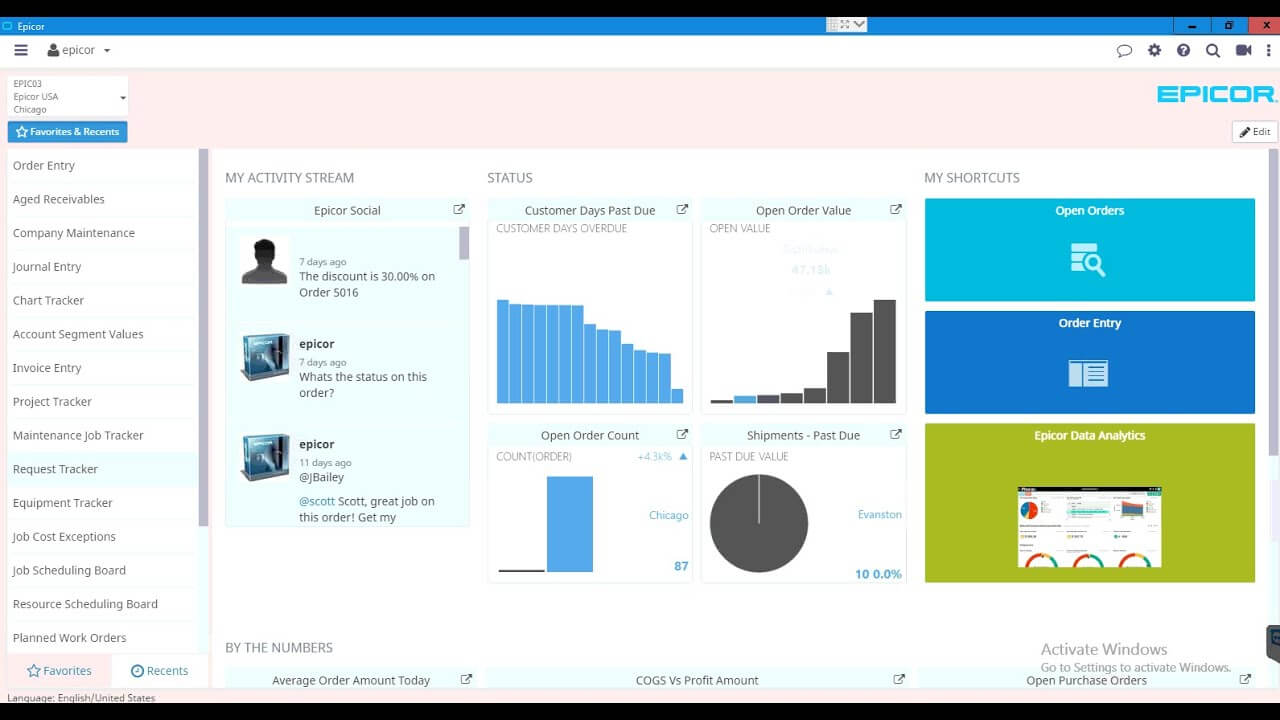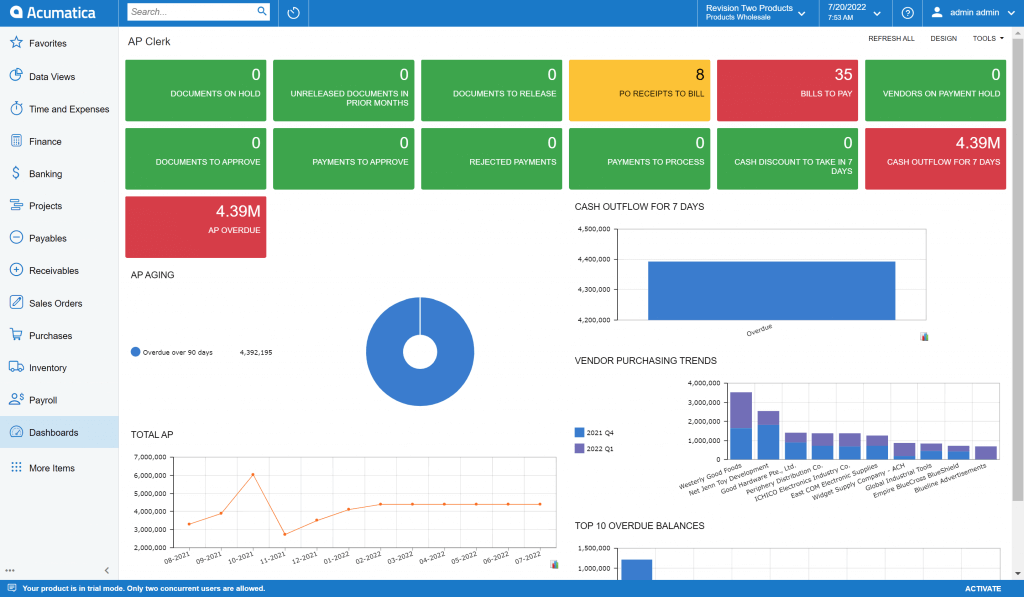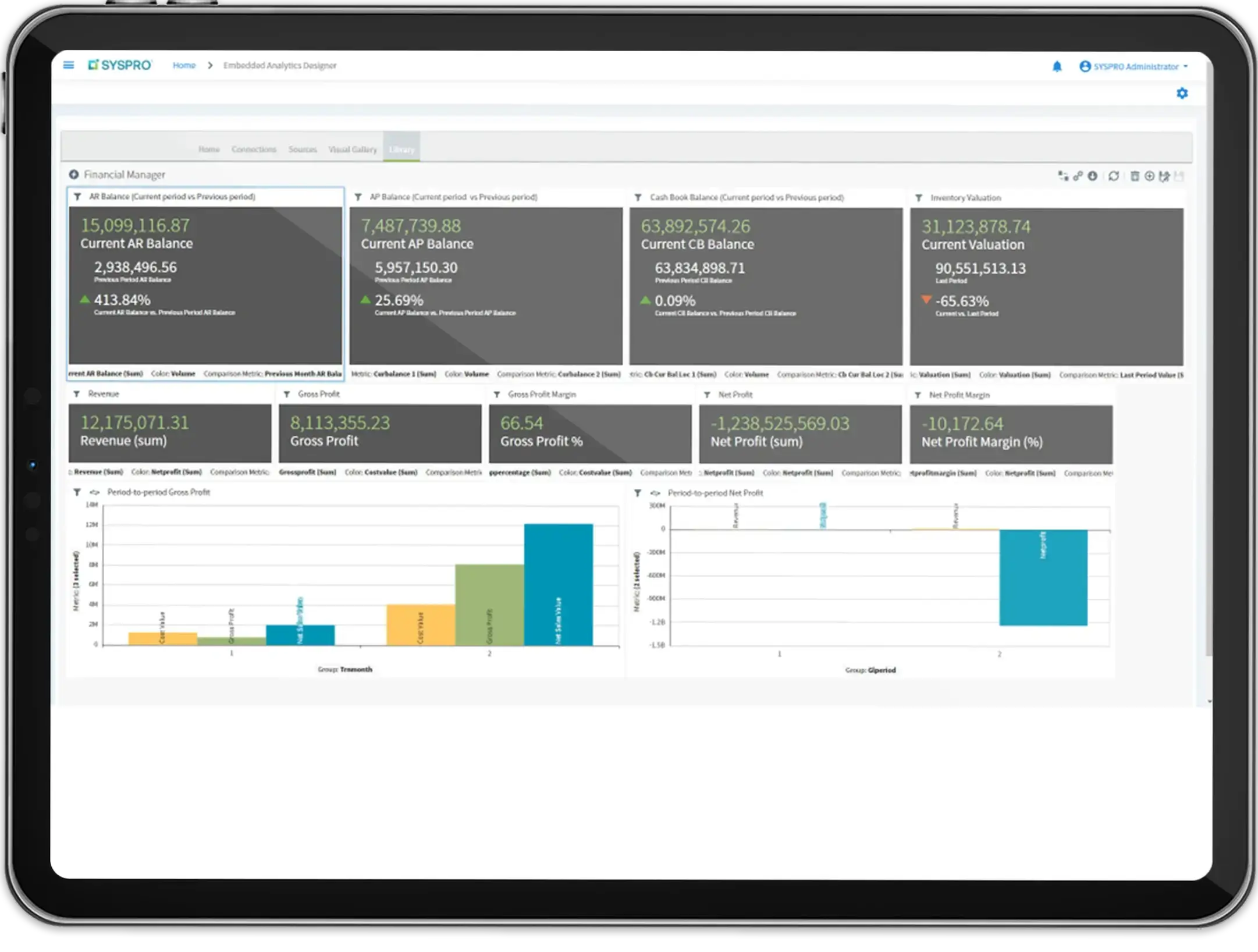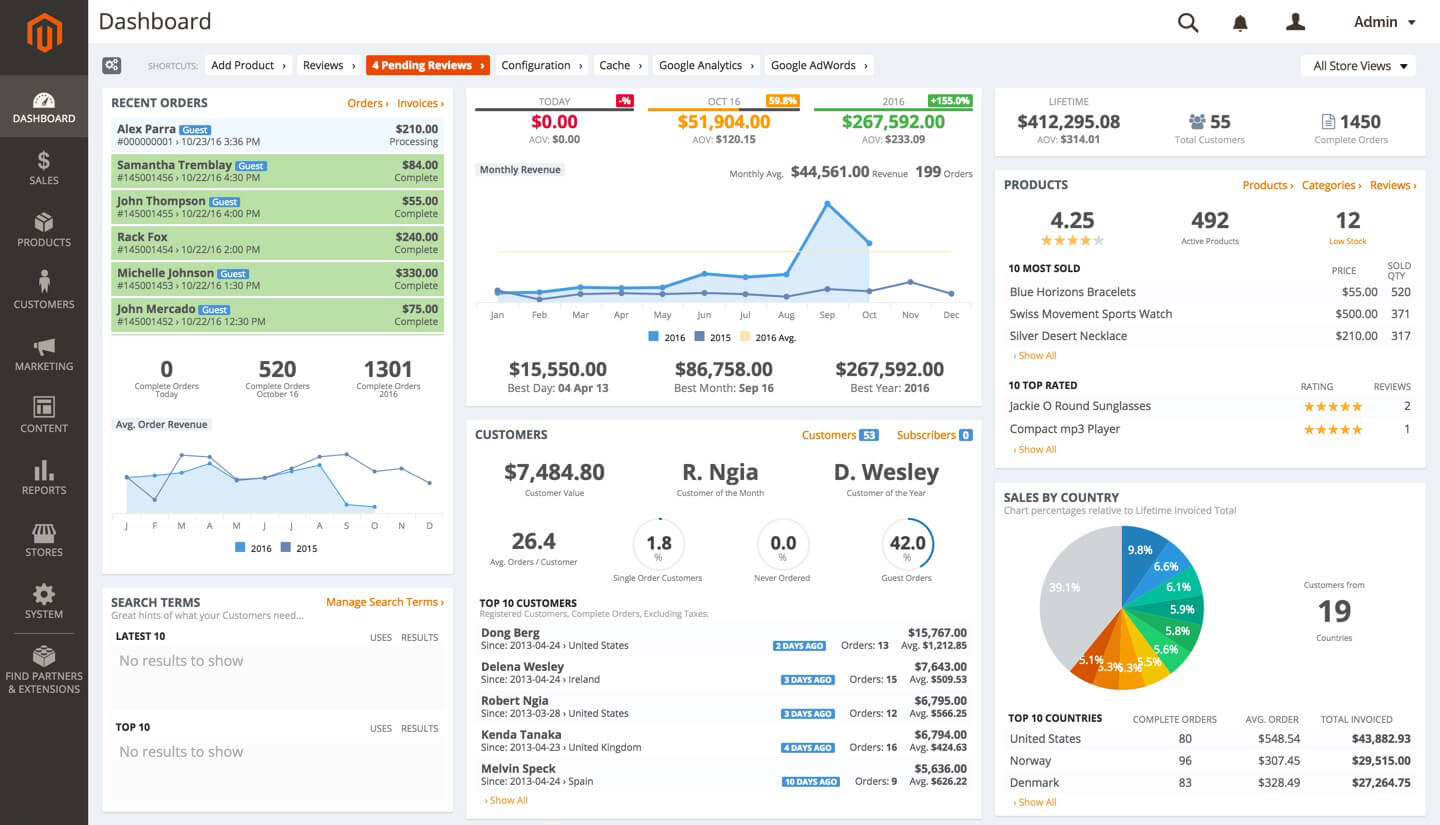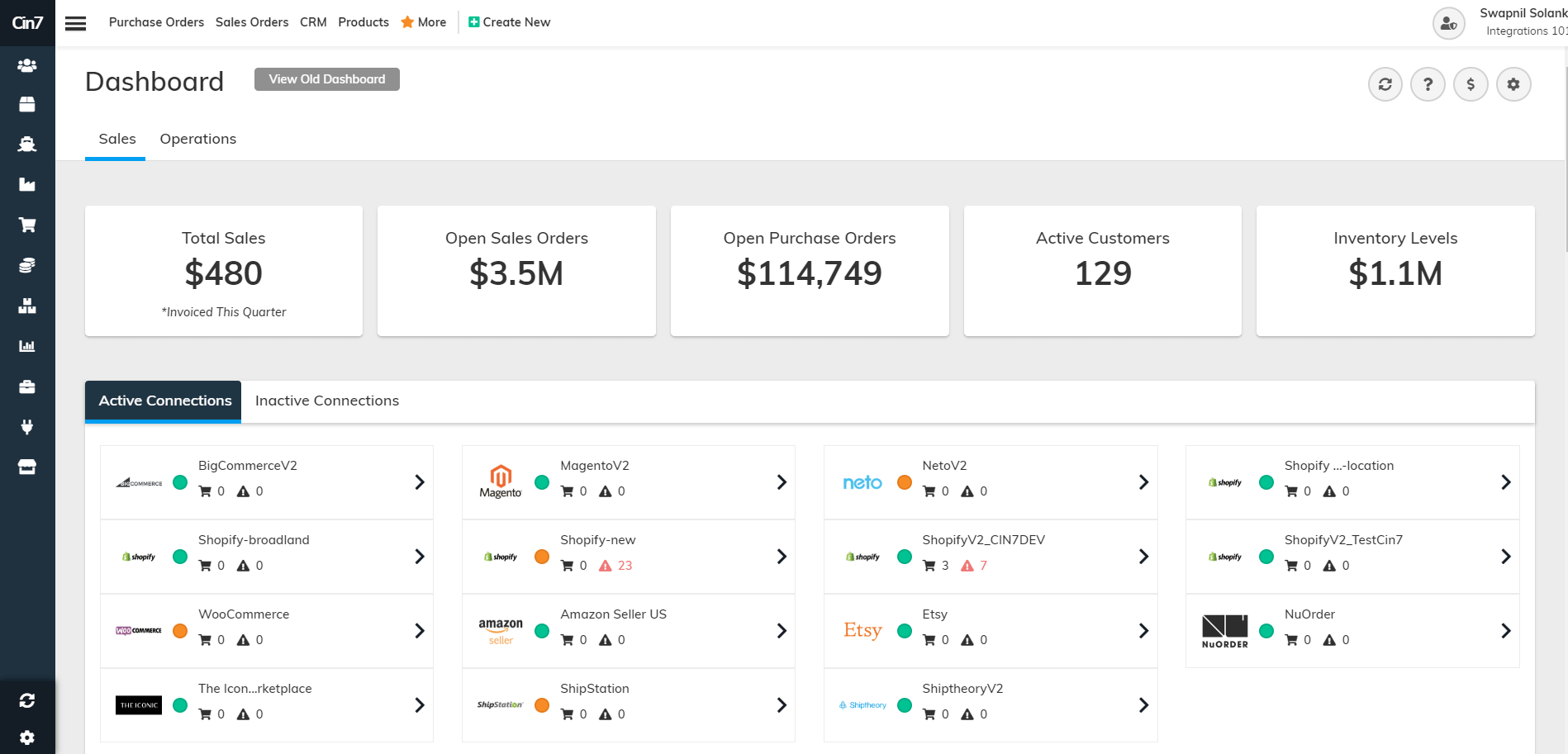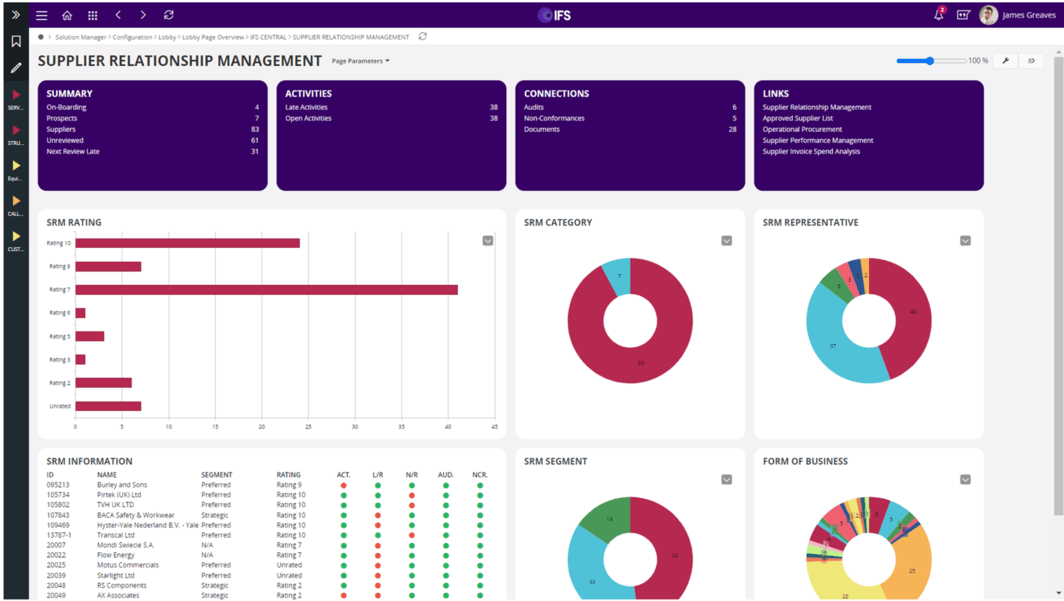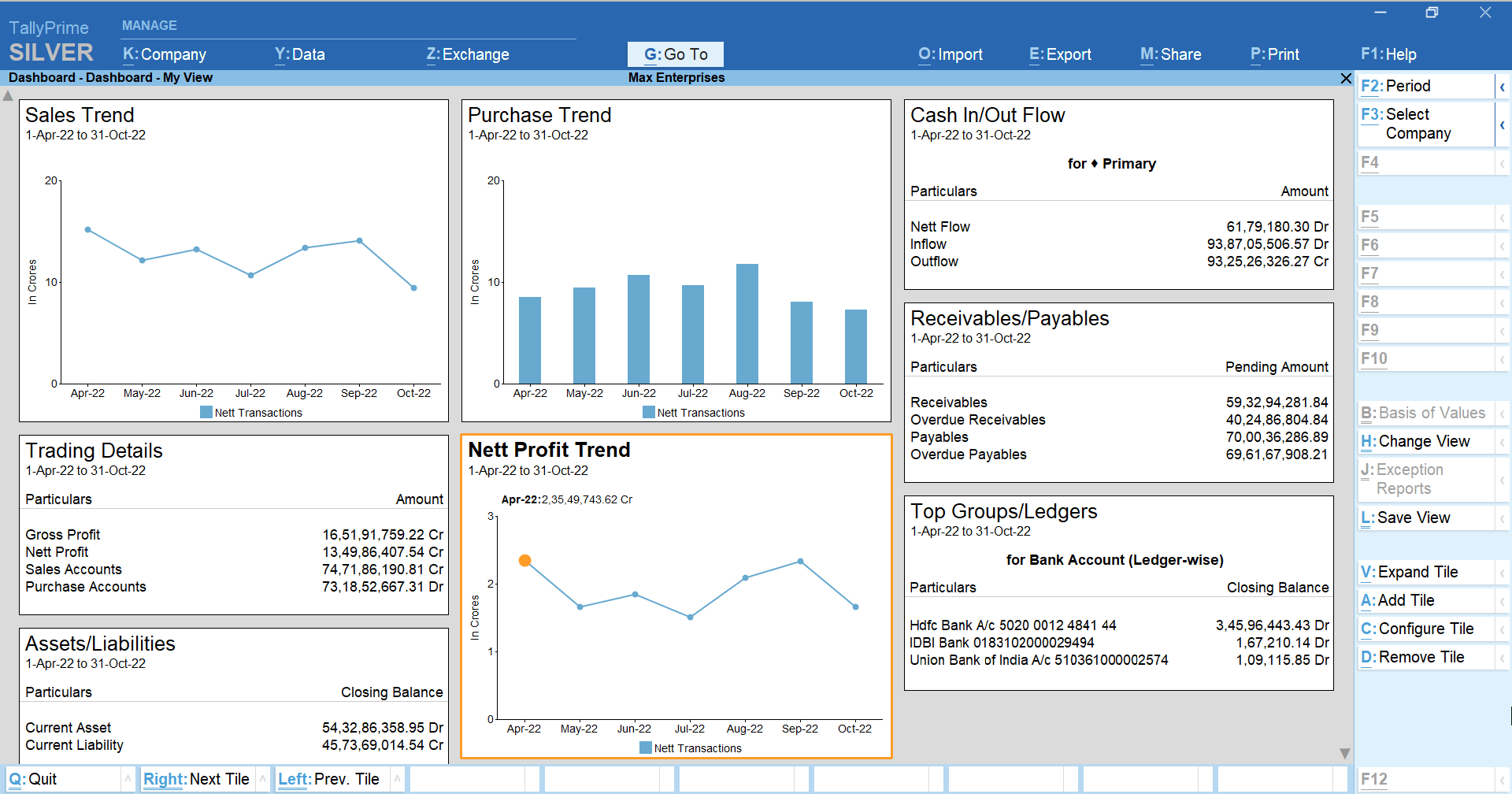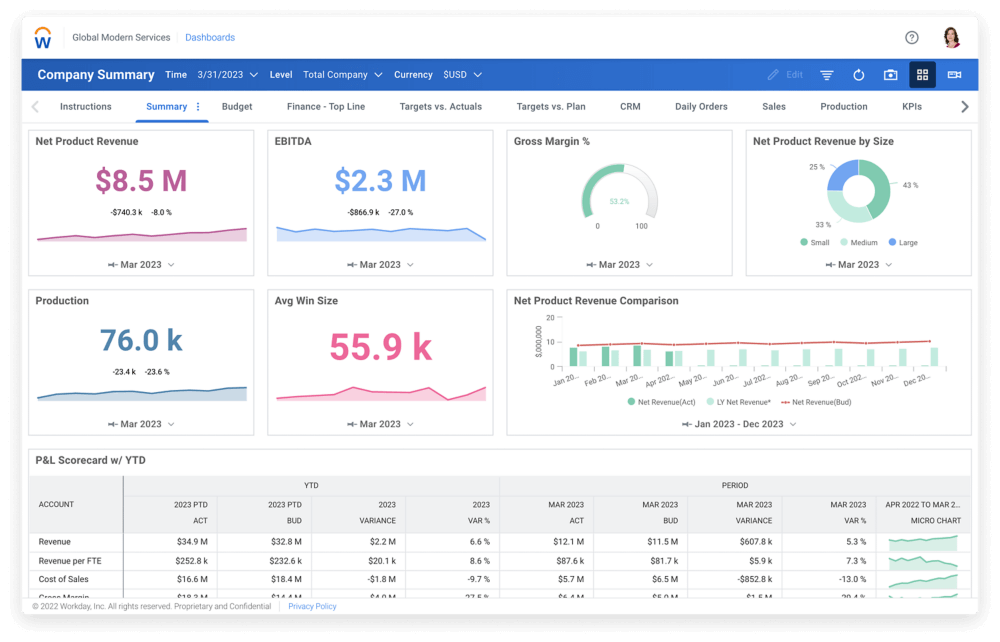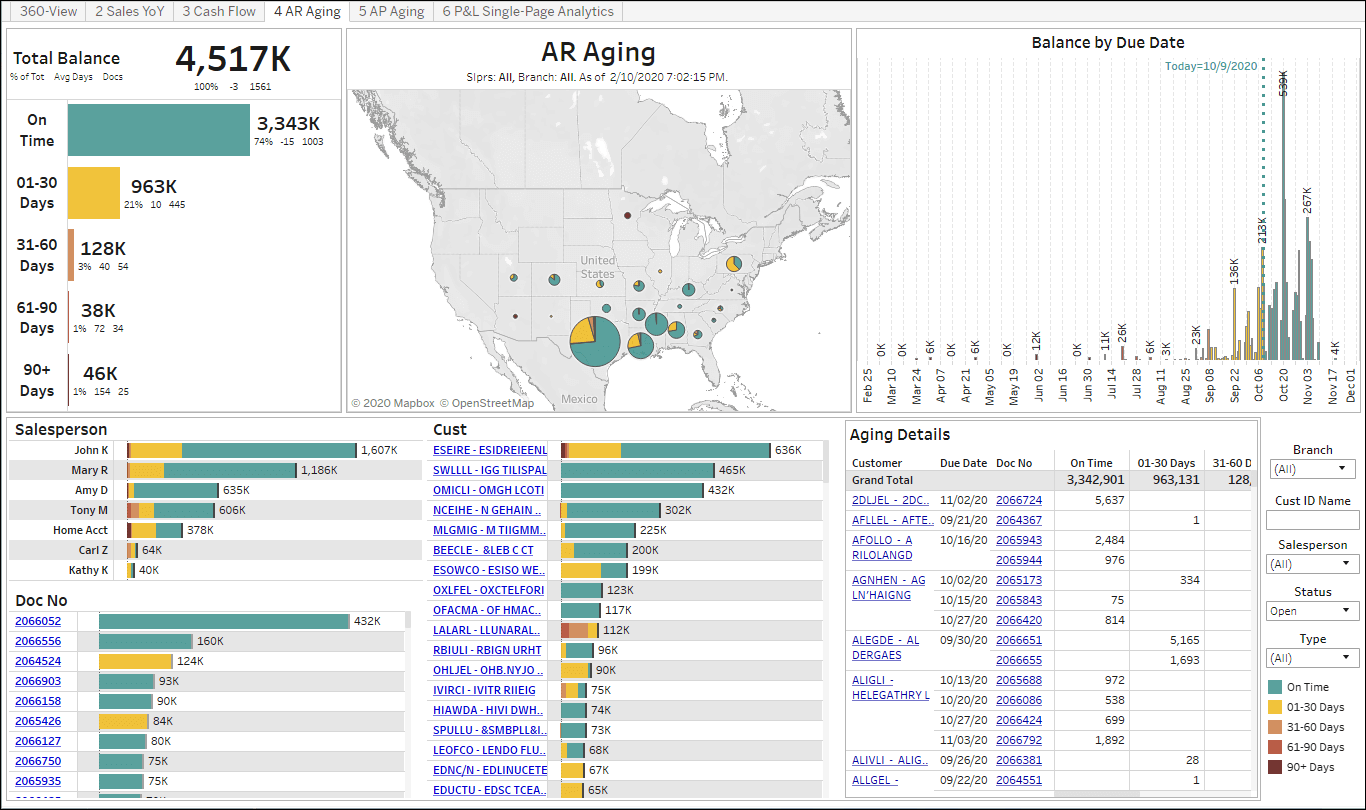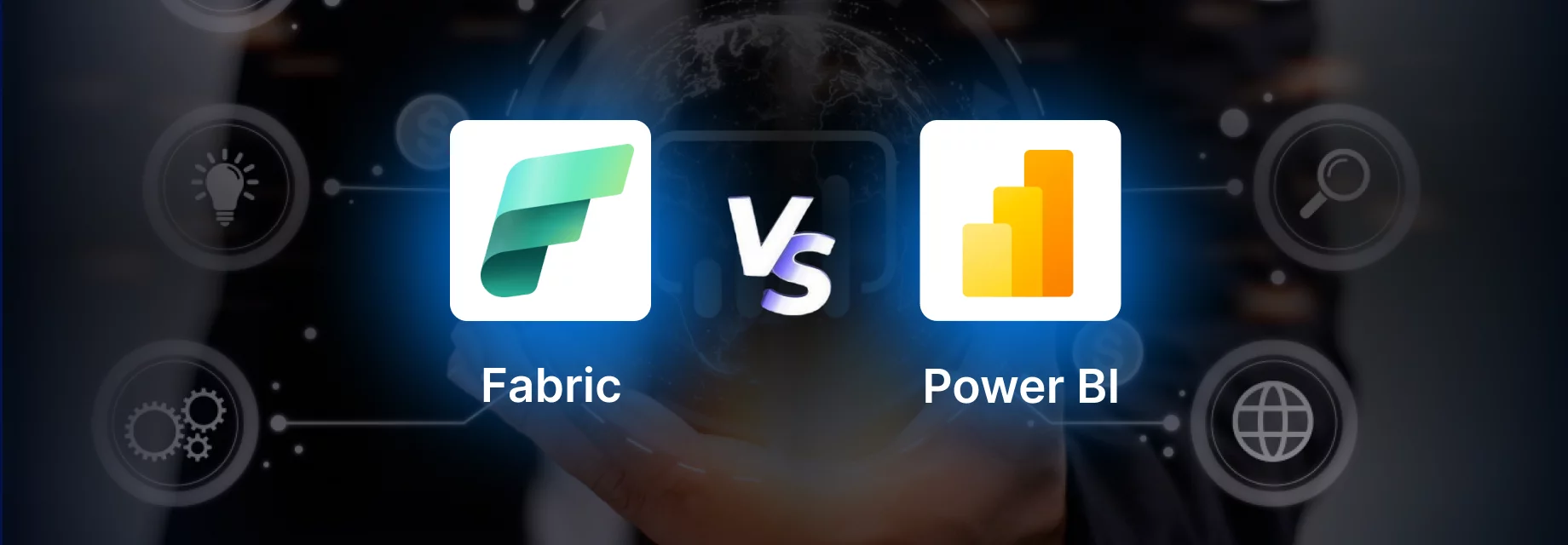In 2025, small businesses are navigating the increasingly complex landscape of enterprise resource planning (ERP) systems designed to streamline operations and boost efficiency. ERP systems have evolved significantly, offering a wide range of functionalities that help businesses integrate various processes, from inventory management and accounting to customer relations and human resources. Selecting the right ERP System for SMB’s is crucial for streamlining operations and driving growth effectively. The benefits of adopting ERP Systems for Small Businesses include improved decision-making, enhanced customer service, and streamlined workflows.
1. Microsoft Dynamics 365 (Business Central)
Dynamic 365 Business Central is a comprehensive suite of advanced business applications hosted securely on Microsoft’s Azure cloud. It serves as a central command center for your company, managing finances, accounts, sales, purchases, warehouse, inventory, customer relationships, HR, and projects all within a single, user-friendly platform, enhancing efficiency and streamlining operations.
Features of Microsoft Dynamics 365 Business Central
- This cloud-based ERP system allows users to access it from anywhere with an internet connection, whether using web browsers, mobile devices, desktops, or tablets.
- Microsoft Business Central integrates seamlessly with tools like Outlook, Excel, and Word for smooth collaboration.
- It automates billing and accounting tasks using built-in AI.
- Obtain real-time business intelligence with Power BI to make quicker decisions.
- Enhance D365 Business Central’s capabilities with a wide range of third-party apps and add-ons, such as “Mobile WMS” for warehouse management.
- For advanced users, Dynamics 365 Business Central provides customization tools like APIs and VS Code.
- It prioritizes security in its licensing and complies with global regulations.
- IoT integration frameworks are included for machine connectivity.
- Quickly locate anything with the convenient “Tell Me” Feature.
Dynamics 365 Business Central Pricing
The pricing for Dynamics 365 Business Central offers a range of options tailored to different business needs. The Team Members plan at $8.00 per user per month is reasonably priced for basic functionalities like document approval and report running. The Essentials plan, at $70.00 per user per month, provides a robust set of features for comprehensive business management, which can be seen as a fair investment for small to medium-sized businesses requiring extensive management tools.
The Premium plan, priced at $100.00 per user per month, includes advanced features like service management and manufacturing, making it a suitable choice for larger businesses with more complex needs. Overall, the pricing appears competitive and well-aligned with the value and capabilities offered
2. Oracle Netsuite
Oracle NetSuite is a cloud-based ERP system that provides a comprehensive suite of integrated business applications. Featuring robust reporting and analytics tools, NetSuite enables small businesses to make data-driven decisions and enhance their overall performance.
Features of Oracle NetSuite
- Delivers immediate insights with pre-built dashboards, reports, and key performance indicators (KPIs).
- Manages all aspects of accounting, order processing, inventory management, production, supply chain, and warehouse operations through a comprehensive suite of applications.
- Provides a 360-degree view of multiple subsidiaries, business units, and legal entities.
- Offers instant access to all financial information, operational data, and transactions across the entire company.
Oracle NetSuite Pricing
The cost of NetSuite software generally begins at around $20,000 annually. Monthly subscriptions usually start at $999, with an additional fee of $120 per user. However, the overall cost can differ depending on various factors, such as:
- User Licenses: The number of people in your organization who need access to NetSuite.
- Base Software: The core functionality required to operate your business within NetSuite.
- Additional Modules: Extra tools that are not included in the base software.
User licenses are priced at a flat rate of $120 each, with the option to add more as needed. Unlike some other ERP systems, NetSuite offers a comprehensive “out of the box” solution, meaning the essential core functionalities are included. Additional modules can be purchased to enhance the software according to your business needs. Don’t forget to factor in the initial implementation costs for setting up NetSuite. For many businesses, especially those requiring extensive functionality and scalability, these costs might be justified. However, for smaller companies or those with less complex needs, the pricing could be considered steep.
3. Infor
Infor recognizes that each industry has distinct requirements. Their specialized ERP systems for small businesses, including Infor Cloud Suite, Infor LN, and Infor M3, are designed with features specific to various industries.” These solutions are renowned for their strong financial management, supply chain optimization, and manufacturing capabilities, making them well-suited for small businesses across different sectors.
Features of Infor
- Connects internal & external systems for enhanced visibility, collaboration, and data-driven insights.
- Utilizes AI/ML models to predict trends, suggest actions, and provide insights tailored to specific industries.
- Facilitates hyper-scaling, automatic updates, and secure access to applications and data from any location.
4. SAP Business One
SAP Business One is a leading ERP software that provides a powerful and adaptable platform to optimize operations, enhance efficiency, and achieve greater control over financial and business data. This client-server application can be implemented either on-premises or in the cloud.
Features of SAP
- SAP B1 is employed by SMBs and can scale to match your growing business demands.
- Decrease costs across financials, purchasing, inventory, and more with AI-driven analytics.
- Attain full visibility and control over every facet of your organization.
- Obtain a clear, unified view of your business through a user-friendly interface.
SAP Business One pricing
The pricing for SAP Business One is explained as follows:
1. Basic Implementation for Eight (8) Users
Designed for small distribution companies that have outgrown their basic accounting software and seek to upgrade to a more integrated ERP system.
Inclusions: Finance, inventory, basic warehouse management, standard reporting, and business intelligence dashboards.
Implementation Cost: $1,800 per month for 8 users, $400 per month for comprehensive support, along with a one-time charge of $40,000 for implementation, training, and system setup.
2. Typical Implementation for 25 Users
Suitable for medium-sized distribution companies with more complex business needs.
Inclusions: Finance, distribution, Material Requirements Planning, inventory, assembly, and custom reporting, along with analytics and business intelligence.
Implementation Cost: $5,000 per month for 25 users, $1,000 per month for comprehensive support, plus a one-time fee of $80,000 for implementation, training, and system configuration.
5. SAGE Intaact
Sage Intacct focuses on financial management and accounting, offering advanced reporting, multi-entity management, and real-time financial data visibility. Tailored for SMBs, it delivers comprehensive financial insights and control.
Features of Sage Intacct
- Provides cloud-based accounting, planning, HR, and payroll solutions for small and medium businesses.
- Delivers instant and predictive performance insights to enhance decision-making.
- Integrates effortlessly with Salesforce CRM, offering a unified business perspective.
6. Epicor
Epicor ERP is a flexible and scalable solution that can be implemented either on-premises or in the cloud, allowing companies to select the deployment model that best suits their IT infrastructure and business needs.
Features of Epicor
- Oversee inventory with real-time data, integrated receipts, and purchase orders.
- Access real-time business insights through embedded analytics tools.
- Handle quotes, orders, product configurations, and opportunity tracking from a single platform.
- Monitor production and processes in real time for enhanced control.
7. Acumatica
Acumatica is recognized for its adaptability and seamless integration capabilities. It is ideal for businesses aiming for digital resilience and looking to connect diverse tools and applications. The platform enhances business processes for greater efficiency and smoother operations.
Features of Acumatica
- Designed for mobile access and remote work environments.
- Perfect for expanding companies looking for operational continuity, efficiency, and flexibility.
- Easily integrates with other essential business applications.
8. SYSPRO
SYSPRO ERP offers a centralized platform for managing essential business processes, enabling manufacturers and distributors to streamline operations, enhance visibility, and make informed, data-driven decisions to foster growth and profitability.
Features of SYSPRO
- An interactive web platform enhances online communication with suppliers.
- Provides out-of-the-box integration with governance, compliance, and supply chain tools.
- Easily forecast and optimize inventory to accommodate different demand sources.
- Offers low-code/no-code options and APIs for connecting with various applications.
- Customize pricing, discounts, and breaks to tailor solutions to your needs.
9. Oddo ERP
Odoo ERP is an open-source, modular solution that provides a broad array of integrated business applications. Renowned for its flexibility and customization options, Odoo ERP features affordable pricing and strong community support, making it a compelling option for small businesses with budget constraints.
Features of Oddo ERP
- Suitable for businesses of any size and budget, scaling alongside your growth.
- It easily integrates with other applications you currently use.
- Consolidates all operations and activities into a single, centralized platform.
- Chosen by 67% of small businesses for its cost-effective ERP solution.
10. Cin7
Cin7 stands out as a top ERP system for small businesses, featuring a robust, cloud-based platform tailored to the needs of growing small and mid-sized companies through its Core solution. For SMBs requiring native EDI, 3PL connections, or managing multiple entities, Cin7 provides the Omni solution.
In contrast to conventional ERP software, which often comes with complexity and high costs, Cin7 offers a more accessible and user-friendly planning tool with rapid implementation in just a few weeks, compared to the months typically needed for other solutions.
Features of Cin7
- It gives your team real-time access to all product and order data, improving collaboration and eliminating information silos.
- Helps Manage direct-to-consumer, B2B, EDI retailers, and 3PL scenarios on a single platform, integrating distributors and commerce channels seamlessly.
- Handle EDI orders with an easy-to-use dashboard and step-by-step guide, no EDI expertise needed.
Pricing for C7
- Standard Core Plan: $349 per month
- Pro Core Plan: $599 per month
- Advanced Core Plan: $999 per month
11. IFS Cloud
IFS Cloud offers a suite suitable for various industries, with lobbies featuring customizable dashboards tailored to specific industry needs and roles.
What sets IFS Cloud apart is its use of advanced technologies like AI and machine learning to streamline processes and enable data-driven decisions. It automates repetitive tasks, optimizes production schedules, and predicts customer needs, enhancing small businesses’ efficiency and agility.
Features of IFS Cloud
- IFS Cloud includes augmented reality (AR) video calls for real-time remote support in service, maintenance, and other areas, enabling quicker issue resolution.
- Utilize built-in machine learning for demand planning and sales opportunity scoring. The model employs AI to provide explanations for ML outputs.
- Customize the user interface with your brand’s colors, logo, and other imagery across all touchpoints within IFS Cloud.
12. QuickBooks
An effective ERP for small business should be user-friendly and scalable to accommodate the growth and evolving needs of the company. Although it’s not a complete ERP system, QuickBooks can be a suitable choice for small businesses that require robust financial features. It meets essential needs such as managing accounts payable, simplifying tax processes, providing bank reconciliation tools, and offering detailed reporting.
Features of QuickBooks
- Take photos of receipts using your smartphone for straightforward expense tracking.
- Get a complete view of your business’s financial health with detailed tracking features that monitor income, expenses, mileage, invoices, project profitability, and more.
- Enhance your tax deductions with QuickBooks’ automated expense categorization. The software automatically classifies your business expenses into the correct tax categories, ensuring accurate records and simplifying tax filing.
Quick Books Pricing
- Simple Start Plan: $15 per month
- Essentials Plan: $30 per month
- Plus Plan: $45 per month
- Advanced Plan: $100 per month
13. Tally Prime
TallyPrime is a highly user-friendly ERP for small businesses, designed for individuals without IT or accounting expertise. Its intuitive navigation and straightforward workflows facilitate a quick and easy setup.
Features of TallyPrime
- You can access reports, switch between companies, or analyze data without leaving your current task, such as entering a voucher.
- TallyPrime provides various options for sharing invoices or ledger reports, including WhatsApp, PDF, JPEG, or Excel. Pre-designed message templates simplify communication further.
- Create separate price lists for wholesalers, retailers, or specific customer groups. These price lists can be assigned to products, allowing for automatic application of prices and discounts in orders and invoices.
Tally Prime Pricing
- Silver Plan: $81 per 3 months
- Gold Plan: $243 per 3 months
14. Workday
Workday ERP Software is a top-tier enterprise resource planning solution designed to improve business processes. It is recognized for its intuitive interface and robust features, making it a favored option for organizations looking to increase efficiency and effectiveness.
Workday pricing is customized and depends on the specific modules and features required. It generally starts at around $100 per user per month, though the final cost varies based on your needs.
Features of Workday
- Includes extensive HR features such as talent management, payroll, time tracking, and more.
- Handles financial processes including accounting, procurement, expense management, and revenue management.
- Integrates business planning with performance management to ensure alignment between strategies and execution.
- Designed for higher education institutions, this system manages the entire student lifecycle from admissions to graduation.
- Provides advanced capabilities for planning, budgeting, and forecasting.
15. Sage 100 ERP
Sage 100 is an ERP software tailored for small and medium-sized businesses to optimize their financial management and improve operational efficiency. It offers a wide range of modules, including payroll, core accounting and finance, e-commerce, manufacturing, distribution, and inventory control.
Features of Sage ERP 100
- Includes features for managing the general ledger, accounts payable and receivable, budgeting, and financial reporting.
- It supports efficient tracking of inventory, managing stock levels, and processing orders.
- Helps with sales order processing, managing customer data, and customer relationship management (CRM).
- It provides tools for planning and overseeing production schedules, materials, and work orders.
Selecting the best ERP for small business has become more challenging as the options in 2025 expand and evolve with greater complexity and innovation. By evaluating factors like scalability, industry-specific features, integration options, and user-friendliness, small businesses can identify the ERP solution that best suits their needs and supports their growth.
The top 15 ERP systems featured in this article provide small businesses with a suite of robust tools to optimize operations, enhance decision-making, and gain a competitive advantage in their markets. Consulting with Business central ERP specialists, such as Intelegain technologies, can assist in identifying the ideal solution for your small business. Connect with us to get started.





